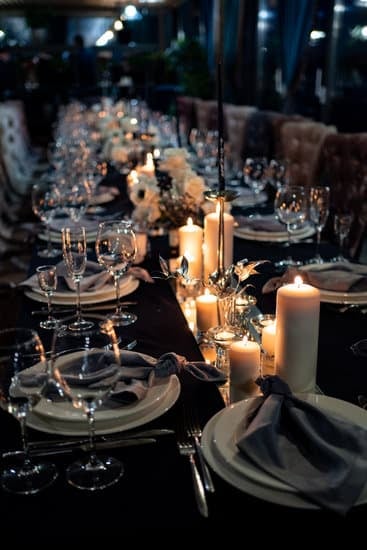Are you planning your dream wedding and wondering how much to budget for a wedding dress? Setting a budget for your wedding dress is an important step in the wedding planning process. Your wedding dress is a significant part of your special day, but it’s essential to consider the cost alongside other expenses. Factors such as fabric, design, and alterations can impact the price of a wedding gown, making it crucial to have a realistic budget in mind.
The average cost of a wedding dress in the US can vary greatly depending on various factors. Whether you’re considering designer options or looking at non-designer dresses, understanding the average costs can help you determine a suitable budget for your own gown. This article will provide insights into the average costs of wedding dresses and offer tips on setting a practical budget based on your overall financial plan.
In addition to understanding the average cost of wedding dresses, it’s essential to consider other factors that can affect the price. From intricate designs to high-quality fabrics, various elements play a role in determining the cost of a wedding gown.
By examining these factors, you’ll be better equipped to set a budget that aligns with your preferences and financial situation. So if you’re wondering how much to budget for a wedding dress, this article will guide you through the process of setting and sticking to a realistic spending plan for this unforgettable part of your special day.
Average Cost of Wedding Dresses
When it comes to planning a wedding, one of the most important decisions for many brides is finding the perfect wedding dress. But before you start shopping, it’s essential to have a clear understanding of how much to budget for a wedding dress.
The average cost of wedding dresses in the US varies depending on several factors, including designer and non-designer options. In this section, we will explore the statistics and data on the average cost of wedding dresses to help you set a realistic budget for your wedding attire.
According to recent studies, the average cost of a wedding dress in the US ranges from $1,500 to $2,000 for non-designer options and can exceed $5,000 for designer gowns. Designer wedding dresses are often made with high-quality fabrics and feature intricate designs that contribute to their higher price tags. On the other hand, non-designer options are more affordable and can still offer beautiful styles without breaking the bank.
Factors such as location and season can also influence the cost of wedding dresses. Brides in larger cities or popular wedding destinations may find that prices are higher due to demand and location-specific trends. Additionally, seasonal sales and promotions can impact pricing, so it’s essential to consider these factors when setting your budget for a wedding dress.
- Average cost of non-designer wedding dresses: $1,500 – $2,000
- Average cost of designer wedding dresses: $5,000+
- Factors influencing costs: Location, season
When determining how much to budget for a wedding dress, it’s crucial to consider your overall wedding budget and personal finances. Setting a realistic budget will help you narrow down your options and avoid overspending on your bridal attire.
Additionally, exploring different opportunities like sample sales, trunk shows, and second-hand options can help you find affordable alternatives without sacrificing style or quality. With careful planning and consideration of these factors, you can confidently set a budget for your dream wedding dress while staying within your financial means.
Factors Affecting the Cost
When budgeting for a wedding dress, it’s essential to consider the various factors that can influence the cost. Understanding these factors can help you make informed decisions and set a realistic budget for your dream dress. Here are some key factors that can affect the price of a wedding dress:
- Fabric: The type and quality of fabric used in a wedding dress can significantly impact its cost. Luxurious fabrics such as silk, lace, and organza are more expensive than synthetic materials. Additionally, intricate detailing and embellishments on the fabric can also drive up the price.
- Design: The complexity and intricacy of the design play a crucial role in determining the cost of a wedding dress. Dresses with elaborate beading, embroidery, or intricate lacework often come with a higher price tag compared to simpler designs. Moreover, custom-designed dresses or those from high-end designers tend to be more expensive.
- Alterations: It’s important to factor in alteration costs when budgeting for your wedding dress. Most brides will need alterations to ensure that their dress fits perfectly. These alterations can include adjustments to the hemline, bodice, sleeves, or other custom changes. Depending on the extent of alterations required, this additional expense should be considered when determining how much to budget for your wedding dress.
By understanding how these factors can impact the cost of a wedding dress, you can make informed decisions when setting your budget. Keep in mind that while it’s important to find a beautiful dress within your budget, prioritizing quality and fit is crucial for feeling confident and comfortable on your special day.
Setting Your Budget
When it comes to planning your wedding, one of the most important aspects is setting a budget for your wedding dress. The big question on every bride’s mind is: “How much should I budget for my wedding dress?” The answer to that question depends on various factors, and in this section, we will offer advice on how to determine a realistic budget for your wedding dress based on your overall wedding budget and personal finances.
The average cost of a wedding dress in the US can range from $1,000 to $5,000, with designer gowns often costing even more. However, it’s crucial to take into account your personal financial situation and allocate a reasonable amount of your overall wedding budget to the dress. Experts recommend that you allocate about 10-15% of your total wedding budget for the dress, although this percentage can vary depending on individual circumstances.
To determine how much to budget for your wedding dress, start by assessing your overall financial situation. Take a look at your savings, any contributions from family or other sources, and how much you are comfortable spending without going overboard. Keep in mind that there may be additional costs such as alterations, accessories, and preservation that should also be factored into your budget.
Another important factor when setting your budget is what kind of dress you have in mind. If you have expensive taste or have dreamed of wearing a designer gown since childhood, you may need to allocate a larger portion of your budget towards the dress. On the other hand, if you are more flexible and open to different styles and options, you may be able to find an equally beautiful gown at a lower price point.
| Factor | Cost |
|---|---|
| Average Cost of Wedding Dress | $1,000 – $5,000 (US) |
| Recommended Allocation from Total Wedding Budget | 10-15% |
Saving Money on Your Dress
When it comes to wedding expenses, the cost of a wedding dress can be a significant part of your overall budget. Knowing how much to budget for a wedding dress is crucial in order to make sure that you can find the perfect gown without breaking the bank. There are many ways to save money on your wedding dress, and it’s important to consider all of your options before making a purchase.
One way to find an affordable wedding dress is by attending sample sales and trunk shows. During these events, bridal boutiques offer discounted prices on designer dresses, allowing you to find a high-quality gown at a fraction of the original cost. It’s important to do some research and keep an eye out for announcements from local bridal shops about upcoming sales and shows.
Another money-saving option is to consider purchasing a second-hand wedding dress. Many brides choose to sell their gowns after their big day, and there are also consignment shops that specialize in selling pre-owned wedding dresses. This can be a great way to find a beautiful dress at a lower price, and with some alterations, you can make it truly your own.
For those who are open to non-traditional options, there are also rental services available that offer designer dresses for a fraction of the cost of purchasing one. This can be an especially appealing choice for brides who may not want to hold on to their dress after the wedding day. By exploring all these options, you’ll be able to stick within your allocated budget while still looking stunning on your special day.
| Option | Description |
|---|---|
| Sample Sales and Trunk Shows | Events where bridal boutiques offer discounted prices on designer dresses |
| Second-Hand Wedding Dress | Purchasing pre-owned dresses from former brides or consignment shops |
| Rental Services | Offering designer dresses for rent at lower costs than purchase |
Hidden Costs
When budgeting for your wedding dress, it’s important to consider not only the initial cost of the gown itself but also the additional expenses that come with it. These hidden costs can add up quickly, so it’s essential to factor them into your overall budget from the beginning. From alterations to accessories, and preservation, there are several expenses that brides should keep in mind when planning for their dream dress.
Alterations
One of the most common hidden costs associated with wedding dresses is alterations. Very few brides will find a dress that fits perfectly off the rack, so alterations are almost always necessary. Whether it’s a simple hem or more extensive changes to the bodice or sleeves, alterations can significantly impact your overall dress budget.
Accessories
In addition to the dress itself, brides may need to budget for accessories such as a veil, jewelry, shoes, and undergarments. These items can add up quickly and should be factored into your overall wedding attire budget from the beginning.
Preservation
Once the wedding is over, many brides choose to preserve their dress as a keepsake. This process helps prevent yellowing or discoloration of the fabric over time but comes with an additional cost. It’s important to consider preservation fees when budgeting for your wedding dress to ensure you can properly care for and store it after your special day.
By considering these hidden costs and factoring them into your overall wedding dress budget, you can avoid any surprises down the line and make sure that you have enough funds set aside for every aspect of your dream gown.
Alternatives to Traditional Wedding Dresses
When it comes to wedding dresses, there are numerous alternative options for brides who may want to spend less on a dress. Whether you’re looking to save money or simply want something unique and non-traditional, exploring different options can lead to finding the perfect dress that fits your style and budget.
Separates
One alternative option for brides is to consider wearing separates instead of a traditional wedding dress. This can include a skirt and top combination, allowing you to mix and match different pieces to create a look that is entirely your own. Separates also offer the flexibility of reusing either the top or bottom for other special occasions in the future, making it a practical and cost-effective choice.
Non-Traditional Colors
Another way to save on your wedding dress is by opting for a non-traditional color. Instead of the classic white or ivory, consider shades like blush, champagne, or even bolder colors like red or black. Choosing a non-traditional color can often result in more affordable options since they may not be labeled as “wedding dresses,” allowing you to explore a wider range of styles and prices.
Rental Options
For brides looking for a budget-friendly alternative, renting a wedding dress is becoming an increasingly popular choice. Many bridal boutiques now offer rental services, allowing you to wear a designer gown at a fraction of the cost.
This option is particularly appealing for those who have their eyes set on a high-end designer dress but don’t want to commit to the full price tag. Renting also eliminates the need for preservation and storage after the wedding, further reducing expenses.
Exploring these alternative options can not only save you money but also open up new possibilities for expressing your personal style on your big day. Whether it’s through separates, non-traditional colors, or rental options, finding an affordable wedding dress that makes you feel beautiful and confident is completely achievable regardless of your budget constraints.
Conclusion
In conclusion, determining how much to budget for a wedding dress is a crucial aspect of wedding planning that shouldn’t be overlooked. As highlighted throughout this article, the average cost of a wedding dress can vary significantly depending on factors such as designer label, fabric, and alterations. Factors influencing the cost must be carefully taken into account when setting a realistic budget for your dress.
It’s important for brides-to-be to consider their overall wedding budget and personal finances when determining how much to allocate specifically for their wedding dress. Setting a realistic budget will help prevent overspending and financial stress during the wedding planning process. By being mindful of both their financial limitations and desired style, brides can find a wonderful dress without breaking the bank.
Additionally, alternatives to traditional wedding dresses were explored in this article as options for brides looking to spend less on their dress, such as separates, non-traditional colors, or rental options. Exploring these alternative options can help brides save money while still feeling beautiful on their special day. In closing, careful consideration of one’s budget for their wedding dress is essential in ensuring that the overall wedding planning experience remains enjoyable and stress-free.
Frequently Asked Questions
What’s a Good Budget for a Wedding Dress?
The budget for a wedding dress can vary depending on individual circumstances and priorities. On average, many people spend between $1500 and $3000 on a wedding dress. However, some may choose to allocate more or less depending on their financial situation and the importance they place on their dress.
Is $4000 Too Much for a Wedding Dress?
Whether $4000 is too much for a wedding dress depends on personal financial considerations and priorities. For some, it may be within their budget and worth the expense for a unique or designer gown. Others may feel that such a price exceeds what they are comfortable spending on a dress they will wear only once.
Is It Worth Spending a Lot of Money on a Wedding Dress?
The decision to spend a lot of money on a wedding dress is subjective and depends on individual circumstances. For some, a wedding dress holds sentimental value and may be worth the investment. Others may prioritize other aspects of their wedding budget, considering the dress as less important in comparison.

I have been involved in marriages for over 20 years helping couples and singles understand more about them.





